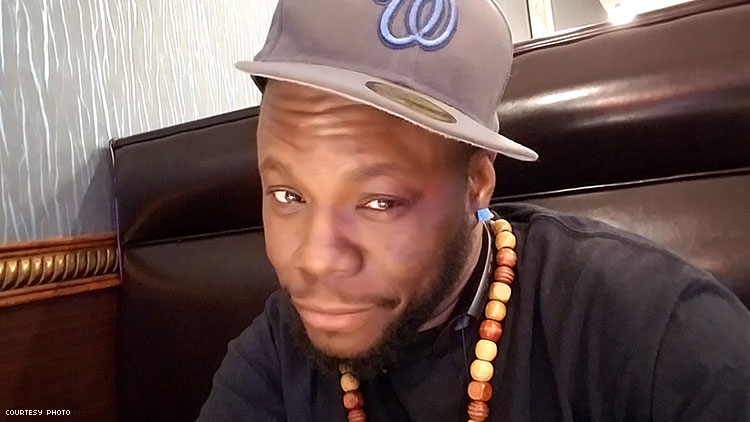Washington D.C. based HIV and trans activist Achim Howard works hard, hitting the streets every day on behalf of people — especially black, trans men living with HIV. Howard corrects me with a nuance, “I’ve always been an advocate for others, not just the trans community. However, I became an advocate for trans men living with HIV when I became positive.”
Howard became positive after being sexually assaulted — so, he identifies with #MeToo, but faces different headwinds as a black, transgender man. Howard learned of his status after telling a close relative about the assault who encouraged him to get checked out by a doctor.
The next day he received a call from the doctor’s office. She urgently needed to see him. When Howard went in “[the doctor] told me I didn’t have any STIs — then the thing I was most scared of next was that I might be pregnant — she told me that I wasn’t pregnant, but she said, ‘I’m sorry to tell you that you have HIV.’”
Howard began treatment and seeing a regular doctor at the Whitman-Walker Health Clinic in Washington, D.C. This care included a therapist, “someone I can talk to if I needed to.” He fondly recalls his first case nurse, Denna, who would check up on him every day, even on her days off.
At the time, he would also often go to his brother and his brother’s partner house to get away, not to think about his diagnosis. His brother suspected something had happened to Howard by the way he was acting. Howard seemed different, more anxious, less confident. “I couldn’t sleep at night. So, to make sure I’d be able to sleep, I’d bring a bottle of wine to their house for the household, and I would have a bottle of wine, or Moscato, or Patron, and drink until I passed out.”
Howard says this was his only way of coping at the time, and he hadn't reached out to his brother yet. “I didn’t want to think about anything. I just wanted to sleep.” Howard's brother grew concerned, as this was all very out of character, and confronted him. He said they were brothers and they should be able to talk about anything. “After I had that conversation with my brother, I ended up telling him I was positive — and that’s when my brother told me he was positive too.”
Howard then told his brother about an experience he’d had at one of the support groups at the Whitman-Walker Health Clinic called Living Well with HIV. He recalls after first being diagnosed, a guy in the group told him (and anyone else who would listen) about the intense regimen of pills he took daily, and their side effects. “He had to take 19 pills a day.” Howard confided to his brother that the experience had made him uncomfortable and that he “wasn’t going back.”
Howard’s brother asked him if they went together, would he continue going to receive treatment?
He would.
And they did.
Together, Howard and his brother went to support groups, retreats, and conferences. “I was learning about myself. I was learning about HIV, and I was learning how to live with HIV,” he says. Though overall, these events were healing and positive, Howard noticed that they would often lump trans people and gay men together in groups, and admits “They would misgender me.”
Howard attempted to educate them. He would explain that what being a trans man was opposed to being a trans woman. Howard got the feeling that all of these groups were tailored to gay men or trans women, but they were misgendering trans men. “It was like they were missing the whole point.”
Like many, Howard is alarmed by the rate HIV transmission in the black community and seeks to do everything and anything he can to stop it. “It’s getting out of hand.”
As an activist, Howard hears the call to action, “but it’s hard because there’s limited funding and the current administration is not on any of our sides. Look at the proposed bill Trump has put out,” he says.
Howard’s dream, if he had the resources, would include awareness for trans men living with HIV — not only awareness among adults, but younger people too. “I want to educate the children. Like from the get go. There are trans men who are becoming comfortable with who they are at a young age. Educating starting as early as middle school.”
Howard thinks maybe then “we can end the rise of HIV transmission rates in my community.”
Follow Trans Men Rising on Twitter @Transmenrising.















READER COMMENTS (